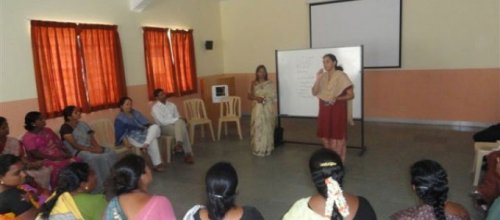Breaking the cycle of poverty through financial education and inclusion
The ING Vysya foundation is piloting an innovative new program to provide financial education to both the parents and children who are under the care of NGOs supported by ING.
Having witnessed a high rate of school drop outs amongst children of low income families (often below the poverty line), the ING Vysya Foundation realised that financially supporting NGO-run education program does not guarantee that children will stay in schools. In order to come up with a long term solution, research was conducted to better understand financial patterns of these families that can be crucial to whether a child remains within the education system.

The research showed that the lack of a steady income, unplanned expenditures coupled with escalating debt to money lenders leads to families withholding children from school so they can contribute to the family income by working. To help break this cycle and facilitate financial circumstances where these children are able to continue their education, ING Vysya Foundation initiated the ‘Financial Education and Inclusion” programme.
Thirty volunteers from ING Vysya together with two local NGOs aim to set a different pattern of planned expenditure, borrowing and saving among these families to help them better manage their earnings. The volunteers who are divided into three groups, two groups for the children by age and one group for parents, conduct open discussions with the families, many of whom are labourers, rag pickers and other social groups below the poverty line.
ING Vysya Volunteer, Lala Debapratim Dey said, “It is very rewarding experience as the parents are so open to learn about managing their earnings better though their earnings are often as low as Rs. 3000/- (Euro 50) a month.”
Parents are taught to cull out unnecessary expenses and understand that working towards long term financial goals according to well thought out expenditure and saving / investment plan will reap huge rewards in the future, such as a steady income, social status and most importantly a better future for their children. They will be further given practical assistance to help improve their financial discipline and knowledge to enable self sustenance through micro-initiatives.
